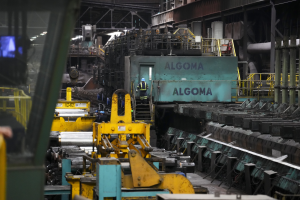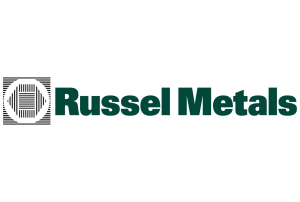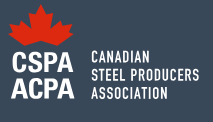
Steel imports slump in September and October
US steel imports declined considerably in September and October, with trade falling to reduced levels not seen in nearly five years.

US steel imports declined considerably in September and October, with trade falling to reduced levels not seen in nearly five years.

SMU sits down with Barry Zekelman to talk North American trade and the state of the US and Canadian steel industries.

Sheet prices are in the middle of one of their most sustained rallies since the first quarter, and this time in the absence of any tariff or trade policy shocks.

Algoma Steel plans to continue its transition to electric-arc furnace (EAF) steelmaking using the CA$500 million in loans from the Ontario provincial and Canadian federal governments.

The latest Baker Hughes rig count report showed oil and gas drilling improved in the US this past week, while Canada saw its rig count decline.

ArcelorMittal sees green shoots in North America despite tepid demand.

Russel Metals posted mixed financial results in its third-quarter earnings report. The Mississauga, Ontario-based metals processing and distribution company generated Canadian $35 million (US$53.5 million) in net income for Q3'25, representing a 1.4% increase from the same quarter in 2024.

Want to know the latest on Trump, tariffs, and trade policy – and the impact on both steel and aluminum? Join Steel Market Update (SMU), Aluminum Market Update (AMU), and leading law firm Wiley for a Community Chat on Thursday, Nov. 13, at 11 am ET.

The latest Baker Hughes rig count report showed oil and gas drilling improved in both the US and Canada in the first week of November.

The Canadian Steel Producers Association (CSPA) applauded the passage of the Canadian federal budget, which includes several measures that aid their domestic steel industry.
Zekelman Industries said Canadians who report the use of foreign steel in active or future public construction projects are eligible for a CAD$1,000.00 (USD$711.62) payment.

President Trump’s decision to suspend trade negotiations with Canada has crushed short-term expectations of any relief for Canadian producers or the US Midwest P1020 premium.
North American auto assemblies declined in September, down 5.1% vs. August. And assemblies were also down 1% year on year.
Algoma Steel’s net loss more than quadrupled in the third quarter on trade woes and its EAF transition. Separately, the company announced a change in leadership, as CEO Michael Garcia will retire at the end of the year.
US President Donald Trump took to social media late Thursday night to announce he was canceling trade talks with Canada.

Drilling activity increased in both the US and Canada last week, according to the latest oil and gas rig count data released by Baker Hughes.

There are days when this feels like a “nothing ever happens” market. Don’t get me wrong. Plenty is happening in the world. It’s just that none of it seems to matter when it comes to sheet and plate prices.

Any steel imports into the EU that exceed the new, lower quota level would be subject to a 50% tariff, which represents a major increase from the EU’s current 25% out-of-quota tariff. This move would largely align the EU’s steel tariff rate with Canada and the United States.

More liberal access to the Northwest Passage could play into trade negotiations between Canada and the United States.
ncreases through September, according to the latest Baker Hughes rig count data.
Canadian Prime Minister Mark Carney and US President Donald Trump told reporters at the White House on Tuesday that they’ll be formulating a trade deal that works for both nations.

The three Canadian companies have announced a strategic partnership to support the development of an ultra-high-speed transit line from Edmonton to Calgary.

The Canadian steelmaker reported on Sept. 30 that “urgent maintenance” was needed in its coke plant off-gas systems. The work required coke oven gas from the No. 2 coke plant to be flared for most of that week.
Gerdau is repositioning its North American business to capitalize on a sharp shift in steel trade flows driven by elevated tariffs across the US, Canada, and Mexico.
US counts continue to hover just above historic lows, while Canadian figures remain comparatively healthy.
The United Steelworkers (USW) is pushing for transparency after Algoma Steel announced earlier this week that it has received CA$500 million in financing from the Canadian government.
Upended by the Trump regime's tornado of tariffs, Algoma Steel is pivoting on its cross-border business model, shifting its focus to supplying the Canadian market.
Oil and gas drilling activity increased this week in the US and Canada for the third consecutive week, according to the latest Baker Hughes rig count data. US counts continue to hover just above historic lows, while Canadian figures remain comparatively healthy.

Algoma Steel has publicly confirmed that it might scale back its presence in the US market. It's no secret why: 50% Section 232 tariffs remain in place against Canada, which has traditionally been one of our closest allies.
Canadian flat-rolled steelmaker Algoma Steel is reconsidering its presence in the US market after the doubling of US Section 232 tariffs on imported steel to 50%, a company spokeswoman said.